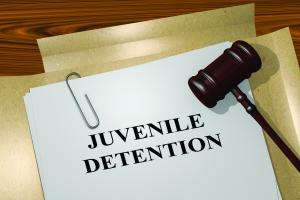'This is no way to treat our most vulnerable young people'

Published by Professional Social Work magazine - 31 October 2019
A youth prison where children routinely self-harm to gain attention was described as a “damning indictment” on the way we treat our most vulnerable citizens by a criminal justice social worker.
Francis Boylan, chair of BASW’s criminal justice group, spoke in the wake of a report by the inspector of prisons highlighting a shocking decline in conditions at Feltham Young Offenders Institution.
It described an “unsafe” and increasingly violent environment with a rise in young people being restrained, children spending less than two hours a day out of their cells and a lack of any “meaningful human interaction” or education.
The decline prompted chief inspector of prisons Peter Clarke to issue an ‘urgent notification’ triggering a letter to the Secretary of State highlighting the increase in “violence and self-harm”.
Statistics showing 82 per cent of children at the institution had been in care and 72 per cent were from black and minority ethnic backgrounds added to concern, said Boylan. “This is showing us how wrong we are treating young vulnerable people. We are taking too many children into care because there has been a demise of help in the community. Youth clubs have gone. The number of children being excluded from school is up. This is a total failure of the care system and we are letting these children down.
“The prison inspector’s report is a damning indictment on the incarceration of young people in this country and the most shocking report I have read on any institution. We must do better.”
Inspectors revisited Feltham A, which holds children aged 15 to 18, in July after hearing “deeply concerning” reports of deteriorating conditions following an inspection in January.
Clarke said: “The outcome of this latest inspection was that we identified a dramatic decline across many aspects of Feltham A’s performance.
“The decline was so acute and the outcomes so poor that for the first time in an establishment dedicated to the detention of children, I decided to use the urgent notification process.”
Since January the institution saw a 45 per cent increase in violent incidents, a 150 per cent rise in assaults against staff. Levels of self-harm had tripled and 72 per cent of children reported having been restrained. Clarke noted “governance of and accountability for the use of force by staff had all but collapsed”.
Fewer than one in five children felt cared for by staff. A third said they had fewer than two hours out of their cell during the week, rising to three-quarters at the weekend.
Education – a “key function of the establishment” – had fallen to little over eight hours a week per child with attendance rates of 37 per cent.
Many children were released without stable accommodation, education, training or employment being lined up.
Clarke said a “negative cycle of containment and separation” dominated the institution. In his letter to the Secretary of State he wrote: “This has led to a collapse of any reasonable regime, preventing many children from getting to education or training, delaying their access to health care, isolated them from meaningful human interaction and frustrated them to the point where violence and self-harm have become the means to express themselves or gain attention.”
Justice Secretary Robert Buckland pledged to improve standards at the institution, including increasing the number of staff and providing training.
This article is published by Professional Social work magazine which provides a platform for a range of perspectives across the social work sector. It does not necessarily reflect the views of the British Association of Social Workers
